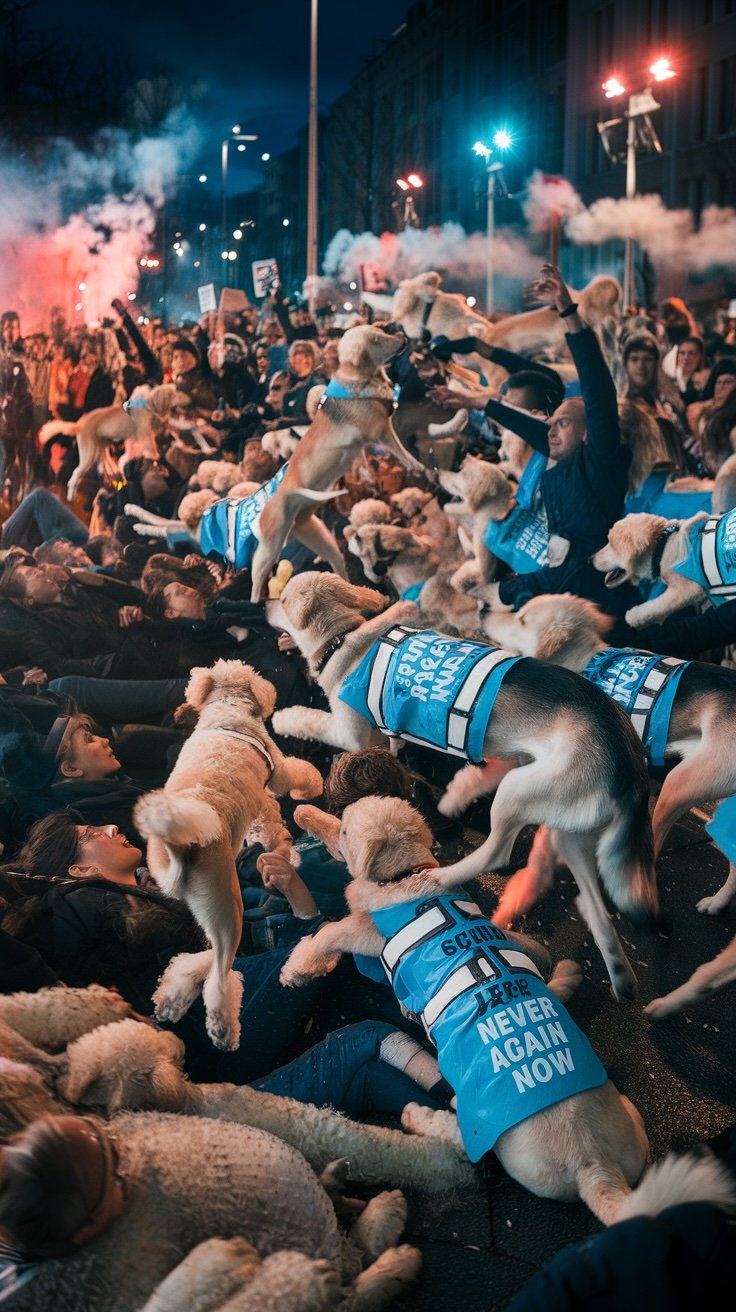Flossi Fights Back in Amsterdam
In 1940, the Nazis formed a Dutch branch of the Waffen-SS, recruiting Dutchmen to serve in the German military forces. Many of these men were members of or sympathetic to the NSB, and they embraced Nazi ideology, including anti-Semitism. Thousands of Dutch men joined the Waffen-SS and were trained to fight alongside German troops.
- Role in Anti-Jewish Actions: While many Dutch SS recruits fought on the Eastern Front, some served in security operations within the Netherlands, assisting the Gestapo and SD (Security Service) in rounding up Jews, Communists, and other “undesirables.” The Dutch SS members were known for their brutality, often involved in raids on Jewish homes and synagogues.
- Deportation Assistance: Dutch SS forces aided in raids and arrests of Jews, contributing to the effectiveness of the Nazi deportation efforts. Many Dutch Jews, who had been hiding or using false identities, were discovered and captured due to Dutch SS members' cooperation.
Henneicke Column and Economic Collaboration
The Henneicke Column, a group named after its leader, Wim Henneicke, was one of the most notorious collaborators involved in identifying Jews in hiding. Unlike the NSB or SS, the Henneicke Column was not motivated by ideology but rather by financial incentives offered by the Nazi occupiers.
- Bounty Hunters of Jews: The Henneicke Column specialised in tracking down and betraying Jews who were hiding or had gone underground. Each captured Jew resulted in a bounty paid by the German authorities, motivating members to pursue this “work” with zeal.
- Impact on Jewish Deportations: Between March and September 1943, the Henneicke Column captured around 8,000 Jews. Many of those captured were subsequently deported to concentration and extermination camps, including Auschwitz and Sobibor, where they were murdered.
The Role of Local Police and Bureaucratic Collaboration
Beyond the NSB, SS, and Henneicke Column, the Dutch police and civil service also played a critical role in the Nazi’s anti-Jewish policies. Many Dutch police officers, administrators, and other civil servants cooperated with the Germans, either out of fear or in support of Nazi policies.
- Enforcement of Anti-Jewish Measures: Dutch police and bureaucrats were involved in enforcing anti-Jewish laws, including the registration and confiscation of Jewish property, the enforcement of ghettos, and the issuance of identity cards.
- Deportation Support: The Dutch police often assisted in the physical deportation of Jews from their homes to collection points and transit camps like Westerbork, from where Jews were sent to extermination camps. Some police and civil servants, though a minority, actively resisted these measures and aided Jews, but overall, a significant part of the Dutch bureaucratic apparatus contributed to the Nazi persecution.
Impact of Collaboration on Dutch Jewry
Approximately 140,000 Jews lived in the Netherlands at the time of the German invasion. Due to widespread collaboration, including active participation by Dutch fascists and specific segments of the police and bureaucracy, around 75% of Dutch Jews were murdered, one of the highest death rates of Jewish populations in Western Europe.


